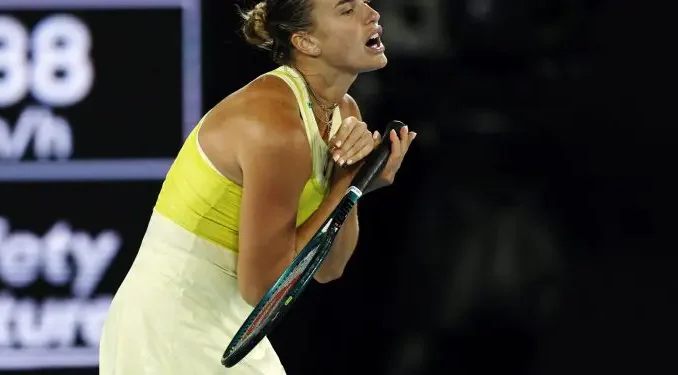
Sabalenka’s Candid Words: Navigating Trust and Transparency in Tennis
The world of professional tennis, a realm often associated with grace, precision, and sportsmanship, has recently found itself grappling with complex issues surrounding doping and the systems designed to combat it. Amidst these swirling controversies, Aryna Sabalenka, a prominent figure in women’s tennis, has voiced her concerns, expressing a deep sense of unease and a struggle to fully trust the processes in place. Her candid remarks have ignited conversations within the tennis community, raising crucial questions about transparency, accountability, and the future of clean sport.
Sabalenka’s journey has been marked by both triumphs and challenges. Her powerful game, characterized by its aggressive groundstrokes and unwavering determination, has propelled her to the upper echelons of the sport. She has tasted Grand Slam success and consistently competed against the world’s best. However, her path has also intersected with the ever-present shadow of doping controversies, casting a pall over the sport she loves.
The recent discussions surrounding doping have highlighted the complexities and nuances of the issue. While the vast majority of athletes compete cleanly, the instances of doping violations, whether intentional or unintentional, serve as a stark reminder of the challenges facing anti-doping organizations. The delicate balance between ensuring fair competition and protecting athletes’ rights is a constant tightrope walk.
Sabalenka’s comments reflect a growing sentiment among some athletes who feel a sense of disconnect between the stated goals of anti-doping efforts and the realities they perceive. She has openly expressed her difficulty in fully trusting the system, a sentiment that stems from a perceived lack of transparency and a sense that the processes are not always fair or equitable. While not specifically detailing particular instances, her words paint a broader picture of unease and a desire for greater clarity.
The issue of trust is paramount in any system designed to uphold fairness and integrity. Athletes, coaches, and fans alike must have confidence that the rules are being applied consistently and that the processes are robust enough to detect and deter doping violations. When that trust is eroded, as Sabalenka’s words suggest, it can have a profound impact on the sport as a whole.
One of the key areas of concern for many athletes is the perceived lack of transparency in the anti-doping process. The details of investigations, the handling of appeals, and the rationale behind decisions are often kept confidential, citing the need to protect the integrity of the process. However, this lack of transparency can lead to suspicion and distrust, particularly when athletes feel that they are not being treated fairly.
Another challenge lies in ensuring consistency across different jurisdictions and sporting organizations. The rules and procedures governing anti-doping can vary, leading to confusion and potential inconsistencies in the way cases are handled. This lack of harmonization can create a sense of unfairness, particularly when athletes are competing on a global stage.
Sabalenka’s remarks underscore the need for open and honest dialogue about these issues. It is crucial for anti-doping organizations, athletes, and other stakeholders to engage in constructive conversations about how to improve the system and rebuild trust. This dialogue must address the concerns raised by athletes like Sabalenka and explore ways to enhance transparency, consistency, and fairness.
The fight against doping is an ongoing battle, one that requires constant vigilance and a commitment to continuous improvement. It is not enough to simply have rules and procedures in place; they must be implemented effectively and in a way that inspires confidence. Athletes must feel that they are part of the process, that their voices are being heard, and that their concerns are being taken seriously.
Sabalenka’s willingness to speak out on this issue is commendable. It takes courage to express dissenting views, particularly when those views challenge the established order. Her words serve as a call to action, urging the tennis community to reflect on the current state of affairs and to work together to create a system that is truly worthy of trust.
The future of clean sport depends on it. It requires a collective effort to ensure that all athletes have a fair and equal opportunity to compete, that the rules are applied consistently and transparently, and that the public can have confidence in the integrity of the sport. The conversation sparked by Sabalenka’s words is an important step in that direction, a chance to address the challenges and build a better future for tennis. It is a future where trust and transparency are not just aspirations but realities, where athletes can compete with confidence, knowing that the system is working to protect the integrity of the sport they love.
Leave a Reply